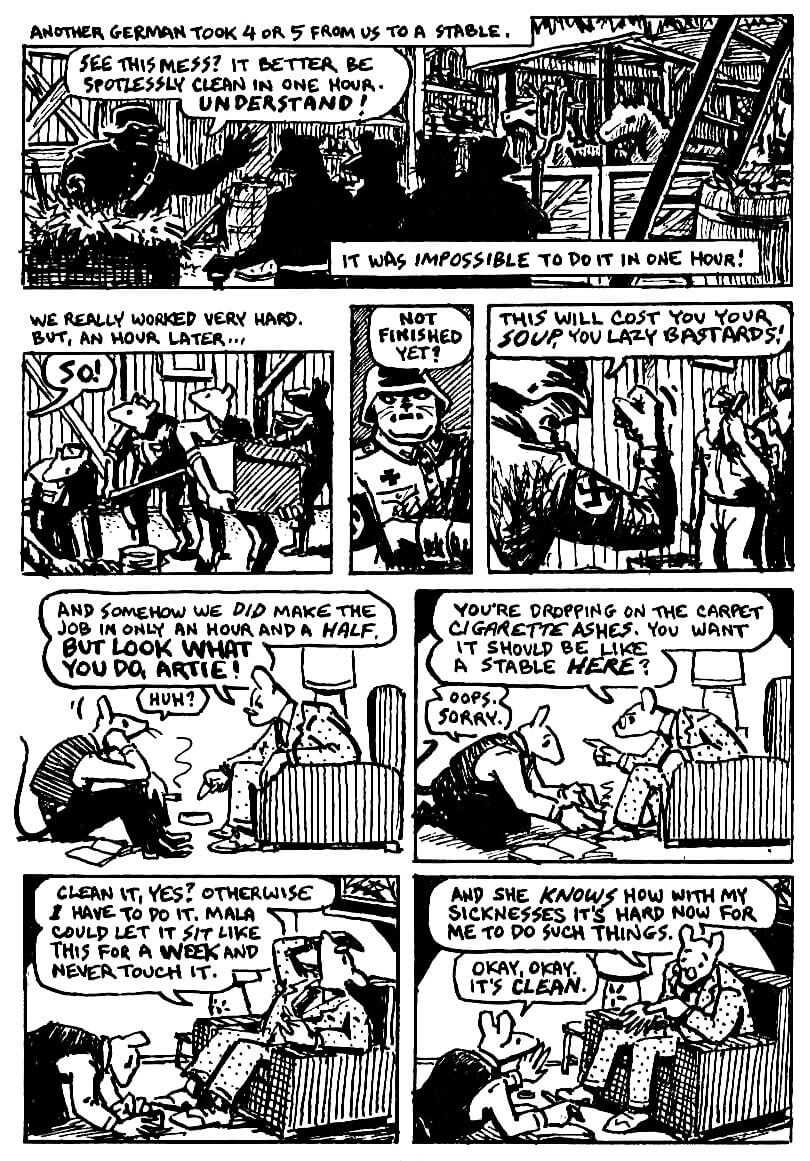

Maus’ subsubtitle, “My Father Bleeds History,” pulls the narrative out of the private sphere and places it in the context of world history the interplay between the two is what makes the book so real. As the book proceeds and we find out about Art’s nervous breakdown at the age of 20 and his mother Anja’s subsequent suicide, we learn that the parents’ experiences had a tremendous bearing on his own psychological development. (The six chapters in this volume appeared, in somewhat different form, in Raw magazine between 19 the story will continue in a second volume, which Spiegelman is currently working on.) Maus’ subtitle, A Survivor’s Tale, refers both to the character Art (the survivor of survivors) and to his father.

This is just one of several self-referential, fictional/nonfictional framing devices that Spiegelman uses throughout Maus, in which Vladek, a Polish Jew, recounts his experiences from the mid ’30s to winter 1944, from his life as an upwardly mobile businessman to the gates of Auschwitz. “I know already my story by heart and even I am interested.” “Of course you are interested,” snaps Mala. “I don’t read ever such comics and even I am interested.” People who don’t usually read such stories will be interested.” In the last chapter of the book, we see a sequence of panels in which Art, a cartoonist, shows his father Vladek and stepmother Mala early sketches for this book. The stark simplicity of the black and white, the openness of the undecorated lines and shapes and letters all work together to tell a story in a way that requires the active participation of the reader/viewer. But Spiegelman knows the potential power of comics, and how the form can be utilized to serve the highest moral values in the face of the enormity of the topic. The mere idea of a comic about the Nazi horrors might at first seem appalling, for fear that the subject would be trivialized. The comic form always involves, to varying degrees, a combination of condensation and outline, leaving open how much we learn from what we see and what is implied, and how we choose to put together such representations. Historians, psychoanalysts, artists, writers, filmmakers, and many others have all struggled with it. Rather, it’s that the critics (with a few exceptions) seem so unprepared for the idea that a comic can convey so complex a narrative about a subject whose unaccountability has made it the most difficult ethical problem of the 20th century. WHAT’S STRANGE ISN’T THAT Art Spiegelman’s Maus has received so much critical acclaim since its publication. Maus: A Survivor’s Tale, by Art Spiegelman.


 0 kommentar(er)
0 kommentar(er)
